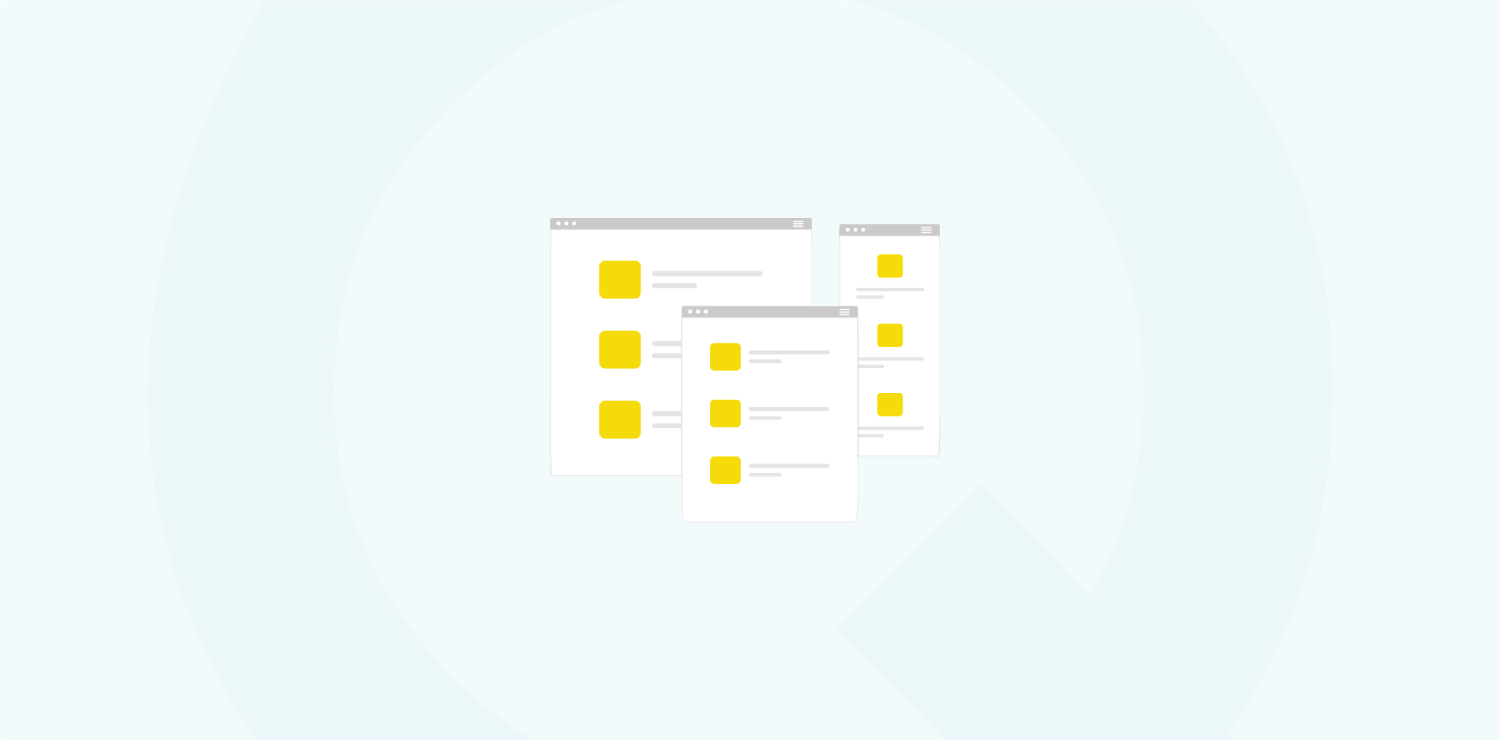Writing a performance review can be quite a daunting task. Not only do you have to be objective, but you should also be careful with your wording to avoid overestimating someone’s abilities or, on the contrary, upsetting someone with negative feedback.
Luckily, there is a number of common mistakes that you can easily avoid when writing a performance review. Hence, here are terrible performance review examples and how you can fix them.
Focus on performance
Perhaps the most important thing you should remember about writing a performance review is that you should always focus on performance above all else. This isn’t about your personal feelings about the person you are reviewing. This is about their objective performance: their achievements, their failures, and so on.
Of course, there is a fine line between what is only related to the job and what is related to their character. However, your performance review should still be focused on performance no matter what. If you want to point out a character-related detail, it’s much better to do so by relating it to the job itself.
Here are some performance review examples for you to use:
Don’t
“You are too bossy/controlling. Other employees constantly complain that you are too intrusive and bother them too much.”
Do
“Your team members have said that they would like to have more autonomy on their tasks and projects. It would be a great idea to let them be more independent.”
Don’t
“You are always missing small details which leads to bigger problems afterward. You are unfocused and don’t pay enough attention to what you do.”

Do
“I noticed some minor errors you have made in certain tasks. Shall we take a look at them together?”
Be concise and specific
Another point to keep in mind is that you should always be concise and specific in every performance review you write.
Because you will need to write a performance review for every member of your team, it can take a lot of time to complete them all. This is why it’s better to keep the performance review brief. On the other hand, you should still be specific with your feedback in your performance review.
All the feedback you provide should be actionable. The person reading it needs to be able to base their further strategy on it. Try to be more factual than interpretive in your performance review. Avoid vagueness at all costs and always strive to get down to details if that will make your performance review more helpful.
Here are some lessons from performance review examples:
Don’t
“You are a valuable addition to our team. We are happy to be working with you.”
Do
“Since you joined our team, we’ve seen our employee satisfaction levels go up thanks to your friendliness and optimism.”
Don’t
“Your suggestions were very helpful for our social media campaigns.”
Do
“Your idea to partner with X, Y, and Z influencers for our last social media marketing campaign helped us increase brand recognition. We would be glad to hear more ideas you might have!”
Ask the right questions
Even though a performance review is meant to provide feedback in statements, it doesn’t mean you can’t add questions to it. In fact, asking the right questions in your performance review can stimulate the employee to be more proactive in response.
It doesn’t mean that your entire performance review should be made up of questions, but you do have to use them from time to time, especially if you want to get the employee’s opinion on something.
If you are unsure how you can add questions to your employee feedback, it’s a good idea to seek professional help. Check out some of the best essay writing service reviews sites and find an expert writer who can help you create a performance review for every member of your team.
You can work together with the writer to truly get the hang of how to write a performance review. Here are some performance review examples of what you can do with questions:
Don’t
“It would be great if you could improve your performance in the future.”
Do
“How can I help you do better the next time?”
Don’t
“Your team needs to be more direct about the resources you need.”
Do
“What kind of resources does your team need for future projects? Don’t hesitate to request what you need.”
Balance the positive and the negative
A great performance review is usually the one that can balance the positive and the negative. In other words, your performance review can’t be entirely positive or entirely negative, even if you think that the employee deserves either one of these. More often than not, the reality is less black-and-white and has more sides to it which is why your performance review should reflect this as much as possible.
In your performance review, try to focus on process with the positive and on progress with the negative. When an employee did something well, point this out and ask them how this approach can be helpful in their further activities or in other areas of the project their team is working on.
On the other hand, when an employee performed poorly, address this issue and ask them how it can be corrected and how their performance can be improved. Here are some relevant performance review examples to use:
Don’t
“The way you set up our social media posting schedule was pretty good. Keep up the great work!”
Do
“Your new posting schedule for our brand accounts resulted in better engagement. How can we apply this approach to our blog’s posting schedule?”
Don’t
“Customers have complained in the past about you. They never get any helpful information from you.”
Do
“Customer feedback showed that you have some knowledge gaps about our products. Do you think you could catch up with the info about our new product lines? I think you’ll do great after that.”
Get personal where possible
Now, this tip might sound a bit strange considering that the first thing you should remember about writing a performance review is that you should focus on the job, not the person doing it. However, you can still get personal in certain situations.
Sometimes, a performance review can become more effective when you get personal. This is because doing so can help you connect with the employee through the performance review.
One way to get personal in your performance review is to show that you have been in the person’s shoes before. When sharing a personal experience in your performance review, avoid making the story too long.
Likewise, never make it about yourself or share something irrelevant or unhelpful – after all this is a performance review about your colleague, not yourself. Here are some performance review examples to help:
Don’t
“You should never make this mistake again.”
Do
“I made this mistake myself, but here’s how you can correct it. It’s quite simple, actually.”
Don’t
“It is a complicated situation, but I trust you to handle it.”
Do
“This reminds me of a situation we once had that was similar to this current one. If you find it hard to handle, don’t hesitate to clarify any details with me.”
Show that you are serious
In some cases, you might want to be brutally honest in your performance review. If a person is constantly underperforming, it could be really tempting to get mean. However, this is definitely not the way to go with your performance review. Instead, try to show that you are serious without being outright mean.
A performance review can encourage the employee to get better at their job, but if you are too demanding, the stress can actually lead to a meltdown. This is exactly why you need to be careful with the wording you use in your performance review.
Here are some performance review examples of what you can do:
Don’t
“All the projects you worked on have failed.”
Do
“I think there is a lot of potential in you, but there are many areas that need improvement.”
Don’t
“You made many mistakes when analysing those customer surveys. Because of that, we made the wrong move and now our customers are angry.”
Do
“Your calculations were off in those customer surveys which led to the complicated situation we have now. Do you have any ideas about how we can solve this problem and avoid it in the future?”
Once your performance review is ready, you can hire a professional writer or editor from a custom writing reviews site like Rated by Students to go through the review and make any additional adjustments. An expert writer will be able to point out some linguistic nuances that could significantly improve or damage your performance review. By addressing those details the right way, you can further perfect your performance review.
How can employees improve after a performance review?
In a perfect world, your employees will take your performance review seriously and will use the opportunity to improve. However, we don’t live in a perfect world which means you will likely have to work closely with your colleagues to help them improve after getting their performance review from you.
In some cases, they might react negatively to the feedback you gave. Even if you made all the necessary adjustments to create an objective performance review for every employee, they might still be upset with the feedback. Here are some ways you can help them learn from their performance review and grow as a professional:
- Let them feel upset or even disappointed with themselves when they get negative feedback. If you see them trying to dismiss the performance review, remind them that they shouldn’t treat it so lightly.
- Help them get a more objective perspective on the performance review they received. They need to recognise both their strong and weak points. Urge them to ask you questions about the performance review to clarify details and understand it better.
- Set clear goals and objectives for their future activities. Also, make sure that they have a plan for future development.
- Provide them with ongoing feedback going forward. Even if they don’t ask for it, give them feedback continuously in the period between the last performance review and the next one.
- Encourage them to take on challenges. Taking on new and unexpected challenges will help your employees grow and develop professionally and as individuals.
In Summary
All in all, it is definitely important to keep in mind your employees’ perspectives when creating a performance review for each member of your team. If you are providing negative feedback, it is crucial that you take into account different nuances related to every employee as an individual as well as a professional.
In addition to that, you should also aim to help your colleagues better understand how to use the feedback they received to become better at what they do. After all, that’s what our list of performance review examples is for.
Author’s Bio
Max Mitchell is the latest alumnus of our content marketing department. He is very passionate about typing, creating complicated spreadsheets, and consuming an inhuman amount of caffeine. Nevertheless, he is also the creative type of individual who will always find a new perspective on topics of interest.



